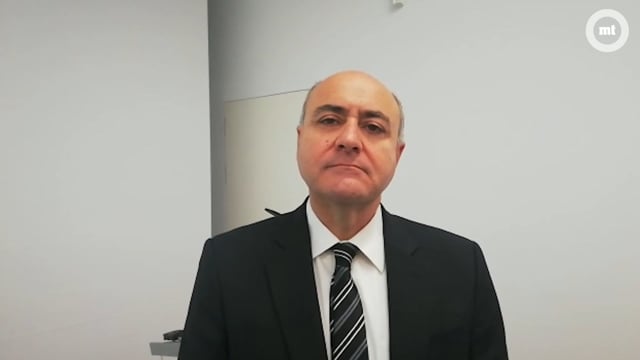[WATCH] Valletta 2018 generated a staggering €678 million… and higher property prices
KPMG study reveals financial pressures, noise pollution, waste generation and encroachment of public spaces but V18 raised Valletta’s profile and €687 million in economic activity


Property values rose in Valletta after marking 2018 as the European capital of culture, but its residents have also complained of the effect of gentrification as more property gave way to boutique hotels.
Culture minister José Herrera said Valletta “had to be” the economic centre of the country, despite acknowledging the negative impacts revealed in research by the V18 Foundation last year, where residents complained of unliveable conditions and locals claimed of having to pay unaffordable rents.
“This is one of the few negative impacts that it had. The positive is that the value of the property in Valletta was enhanced and Valletta became more prestigious… personally I prefer that Valletta becomes more prestigious, more socially active and more economically active. Valletta is not Mdina. Valletta needs to be the economic centre of the country,” Herrera told MaltaToday.
He said Valletta has always faced a problem of social accommodation and that administrations in the past had attempted to address it. He said Labour was committed to create affordable housing projects in Valletta.
Herrera was speaking at a press conference at MUZA in Valletta on Friday, as KPMG presented a report on the positive economic impact that V18 had had on the capital.
€678 million were generated in the economy by Valletta 2018 according to the study.
KPMG's consultation with the business community and stakeholders found that gentrification had led to some financial pressures, noise pollution, waste generation and the encroachment of public spaces. But the city’s profile had been stepped up and that V18 was an overall success, having widened the cultural fabric and created an “unprecedented awareness of the cultural sector.”
Findings shows that Valletta 2018 left a total economic impact of over €325 million and generated a total investment of €678 in the Maltese economy. An increase of 2.23% of 2018 GDP was also registered.
“The European Capital of Culture’s positive impact was greatly felt by the business community in Valletta as the city recorded a rise in the number of visiting tourists following effective marketing efforts carried out by the V18 Foundation with the collaboration of other entities,” the report read.
Valletta registered an increase of over 350,000 tourists in 2018, amounting to a total of 2,600,000 tourists during the European Capital Culture of the Year.
The report found that 8,000 jobs were created in a number of sectors, including creativity, hospitality, heritage, IT services and transport, including ferry connections.
Valletta Cultural Agency chairman Jason Micallef said that V18 was “no fluke” and that it left a tangible legacy.
“The plan worked and it is being felt. The success was not just V18 but the 2019 ripple effect. It is a large enough sample to augur well for 2020 and the next years,” he said, adding that Valletta was seeing three events a month throughout the year and that Valletta had become a product.
Micallef announced a €10 million investment for start-ups for art and design graduates to improve the capital.
















.jpg)






